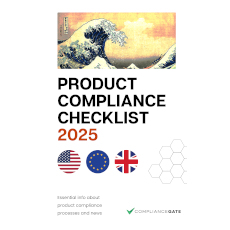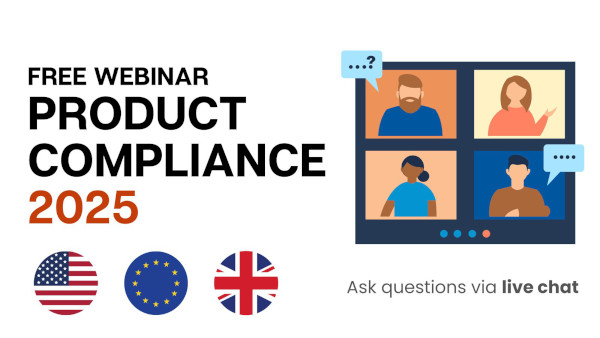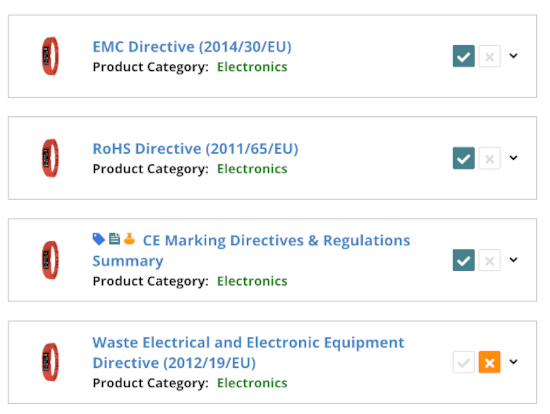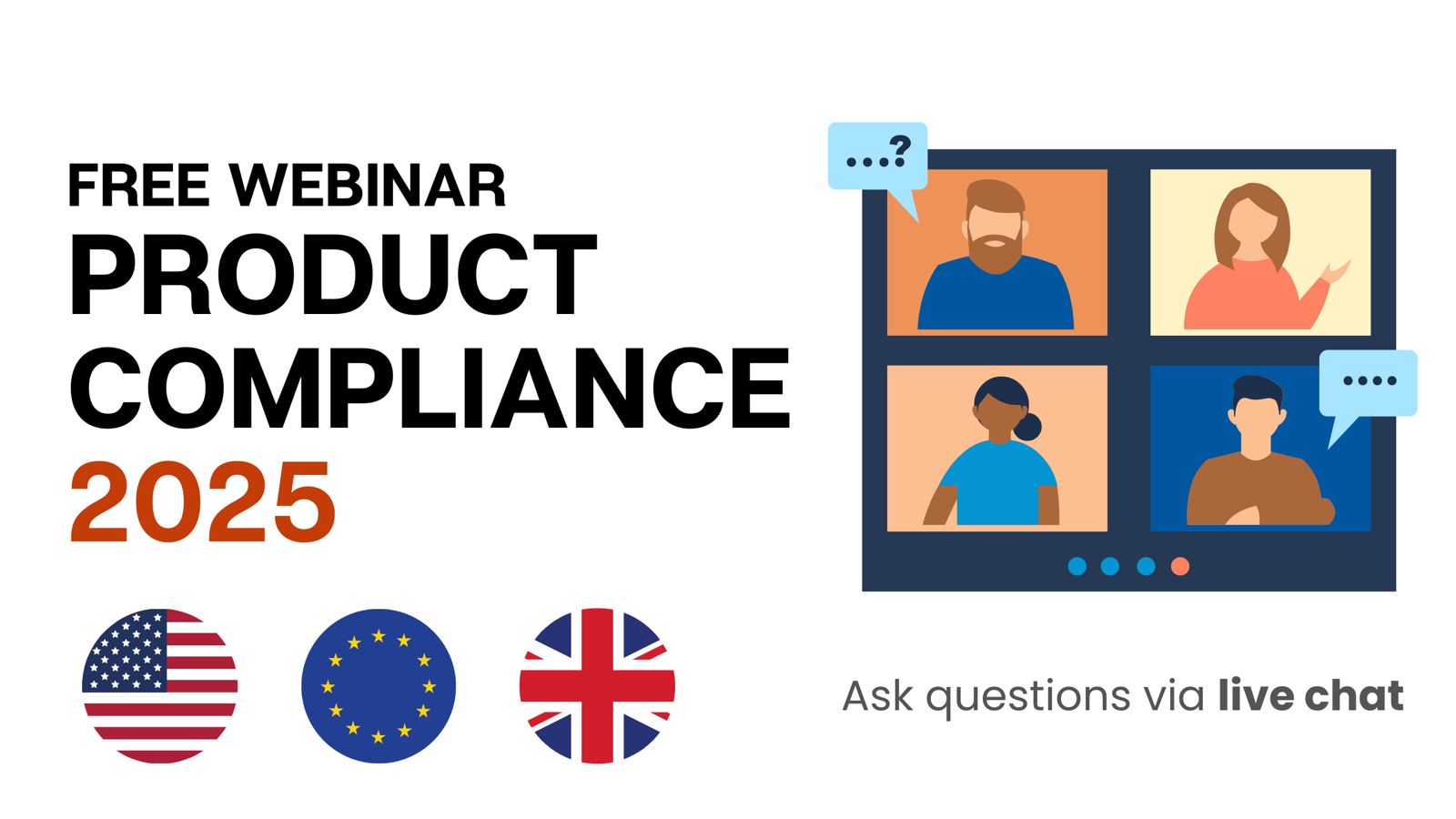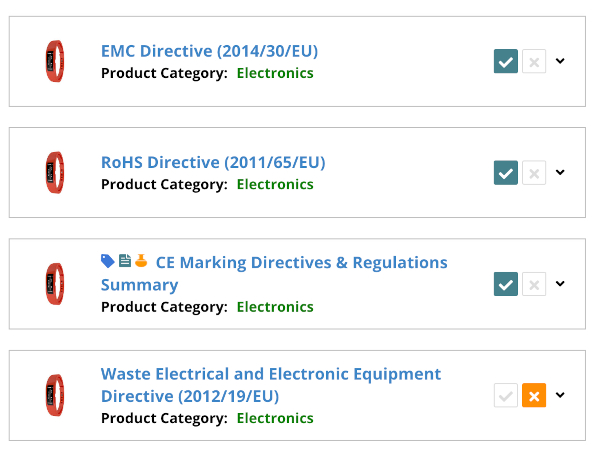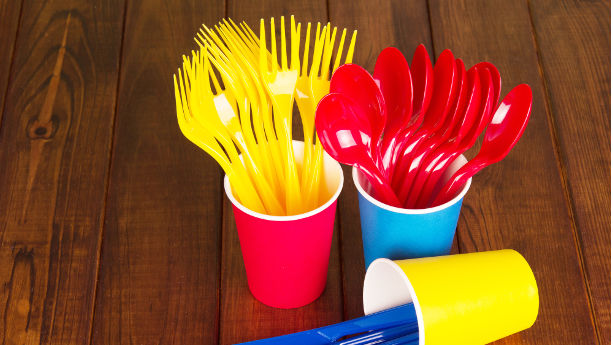
Single-use plastic products, such as plastic straws, cutlery, and cups, are slowly being phased out in the United States. In this guide, we explain what American importers and manufacturers must know about single-use plastic regulations, bans, and exemptions in California, New York, Oregon, and many other states.
Content Overview

FREE CONSULTATION CALL (US, EU & UK)
- Request a free 30-minute call with Ivan Malloci to learn how we can help you with:
- Find product requirements
- Certification and labeling
- Lab testing
What is single-use plastic?
Single-use plastic products refer to products that are made from plastic and are designed to be used only once or for a short period of time before being disposed of. Single-use plastic products can be made from cellulose, natural gas, or crude oil. Depending on the composition and treating methods, some plastic products might be degradable.
Some example of single-use plastic products:
- Single-use plastic cups
- Single-use plastic straws
- Single-use plastic utensils
- Single-use plastic shopping bags
Even if single-use plastic products have the advantages of being economical and practical, it has become clear that they are a threat to the environment. For this reason, many US states, counties, and municipalities are implementing regulations concerning single-use plastic products.
Are single-use plastics banned in the United States?
Currently, there are no regulations that restrict single-use plastics on a federal level. However, many states and cities have enacted or are planning to introduce acts to regulate the consumption of single-use plastics, such as shopping and, grocery bags, plastic straws, styrofoam utensils, and food and beverage containers.
Which single-use plastics and products are regulated in the United States?
In this section, we list some examples of single-use plastic products that are currently regulated on a state level:
- Bowls
- Plates
- Trays
- Cups
- Cutlery
- Straws
- Stirrers
- Clamshells
- Coolers
- Ice chests
- Plastic bags
- Takeout containers
As you can see, at the moment this mainly concerns plastic bags and FCM (food contact materials).
Which US states and cities regulate single-use plastics?
Several states and cities in the United States have regulations or acts that restrict or ban the use of single-use plastic products, mainly plastic shopping bags, grocery bags, and plastic straws. Below you can find a non-exhaustive overview.
| State / District / City | Citation / Regulation | Single-use plastic bags | Single-use plastic FCMs | Notes |
| California | Senate Bill 270 | ✔ | Restricted or extra charges | |
| New York | Senate Bill 1508 | ✔ | Ban in grocery stores and other retailers | |
| New Jersey | Single-Use Ban on Plastics | ✔ | ✔ | Ban single-use plastic bags. Ban of utensils and containers made of polystyrene foam |
| Connecticut | 2019 HB 7424 | ✔ | Ban | |
| Oregon | 2019 HB 2509 | ✔ | Restricted or extra charges | |
| Vermont | Senate Bill 113 | ✔ | ✔ | Ban of single-use plastic bags and straws |
| Hawaii | Bill 40 | ✔ | Ban single-use plastic straws. Ban of utensils and containers made of polystyrene foam |
|
| District of Columbia | 2010 B 150 | ✔ | ✔ | Ban of single-use plastic bags and straws |
| District of Columbia | Sustainable DC Omnibus Amendment Act of 2014 | ✔ | Ban polystyrene (styrofoam) FCMs in retail and foodservice containers. Ban of single-use plastic straws |
|
| Seattle | Food Service Packaging Requirements | ✔ | Ban of polystyrene (styrofoam) food service containers and cups in restaurants | |
| Miami | Plastic Straw Ordinance | ✔ | Ban of single-use plastic straws | |
| Malibu | Straws, Stirrers, and Cutlery Ban | ✔ | Ban of single-use plastic straws, stirrers, and cutlery |
Some other states have introduced initiatives advocating for the recycling and reducing consumption of single-use plastic bags, utensils, food, and beverage containers. These states include Idaho, Illinois, New York, and Rhode Island.
Why are certain single-use plastic products regulated?
Single-use plastic products such as plastic grocery bags and disposable styrofoam utensils are cheap to produce and have been widely used in many industries. Therefore, in the past few decades, the US has witnessed the exploding consumption of single-use plastic products.
According to the data shown by the US Environmental Protection Agency, the US has generated more than 25,550,000 tons of plastic in 2000, and the number increased to 35,680,000 in 2018.
Another data provided by the New York Department of Environmental Conservation shows that around 23 billion plastic bags are used by residents in New York State annually. New York City alone uses more than 10 billion single-use plastic bags a year, which generates more than 1,700 tons of residential garbage every week. The unrestrained consumption of plastics has led to a cost of an estimated US$12.5 million a year solely for transporting plastic bags to out-of-state landfills.
Also, the use of plastic bags and styrofoam utensils have aggravated the ecosystem balance of land and marine environment in various ways, at the same time bringing formidable challenges to the sustainability of the economy.
Examples include chemical pollution of the earth, water, and air during the manufacturing, consuming, and disposal of these products, incidents of animals eating plastics and poisoning, clogging and jamming of urban tubing systems, and more.
How do I know if my products contain single-use plastics?
In most cases, single-use plastic products are easy to recognize since they are ubiquitous in our life. Examples of single-use plastics include shopping bags, plastic beverage straws, styrofoam clamshells, bowls, cups, and forks.
If you are not sure whether your products are made of or contained single-use plastics, you can contact a lab testing company and get professional advice.
What can happen if I import or manufacture single-use plastics?
Currently, in the US, some states forbid or restrict the use of certain single-use plastic products, mainly single-use plastic bags and beverage straws. In practice, there are still many exemptions. For example, in Washington D.C., the Foam Ban excludes packaging materials made from foam that does not expand polystyrene, including some foam rolls and inserts.
However, if you import or sell banned products, you might incur denial of entry of the goods, fines, and more.


